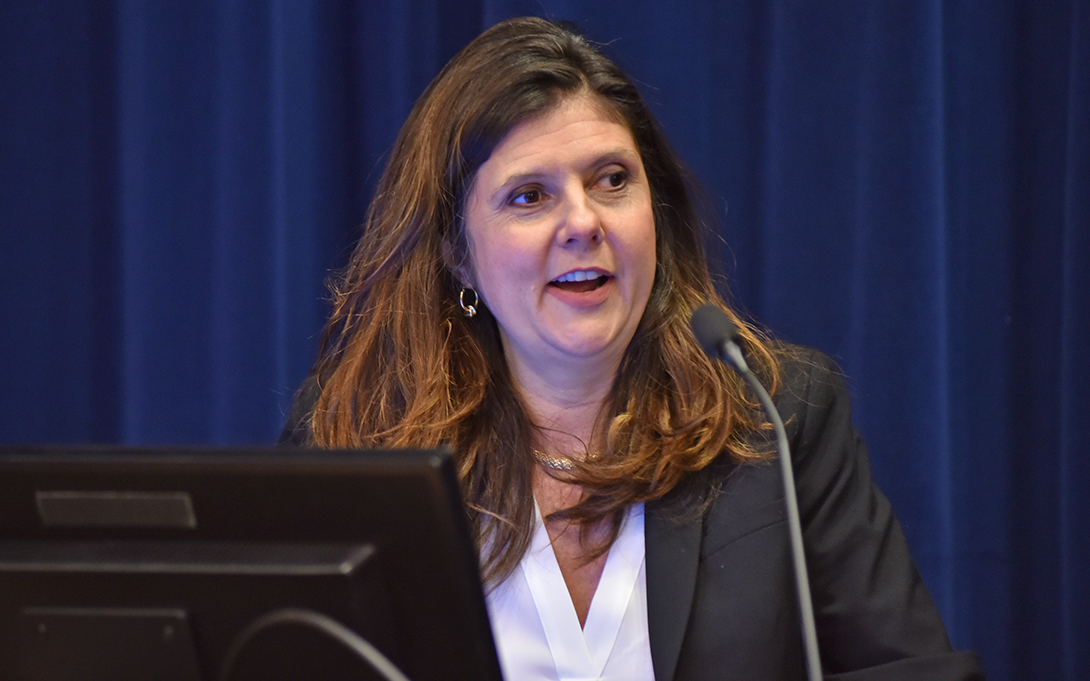
The U.S. inflation rate continues to be at the highest levels in years, and the Fed has indicated it will raise interest rates to dampen those numbers. But taking action against inflation could hurt employment numbers, just when people are returning to the post-pandemic workforce.
Ford School professor Betsey Stevenson discussed how to achieve that balance in a series of appearances in media outlets.
She explained the conflicting pressures on Balance of Power on Bloomberg TV. “We are seeing a lot of people being hired, a lot of people going into new jobs, and we don’t see a lot of upward wage pressure contributing to inflation. So it’s absolutely true that the Fed has to cool demand in our economy right now. But it’s not clear to me they need to cool the labor market. What they want is to cool demand while trying to keep the labor market where it’s at without a spike in unemployment. That’s obviously a really tough job for them. Can they get inflation down without bringing unemployment up? Certainly that should be their goal.”
She discussed one factor in the tight job market with the Financial Times, saying that the shock of the pandemic had resulted in big societal shifts, with more Americans cooking their own food and caring for children and elders. “I do wonder whether there has been a shift in preferences to wanting a little bit less work and a little bit more, ‘do things for ourselves’,” she said.
One indication that people are not worried about an impending recession is that they are spending down their savings, according to a segment on Marketplace. “If the threat of a recession is looming, the smart thing to do is build your savings up,” Stevenson said. But so far, Americans seem confident that they’ll keep their jobs and their pay will keep rising, the article states.
For the Talking Feds podcast, Stevenson said her fear about inflation was that it would move from the goods-producing sector to the service sector. “We need to be forward-looking, not complaining about the inflation that we have had in the past, but just asking ourselves, ‘Do we have the bandwidth in the labor market? Do we have the immigration policies necessary for hiring?’ In order to make sure that we don’t see inflation accelerate through services.”
So far, that has not been the case, she told Marketplace in another appearance. “We don’t see that inflation is the highest in sectors that have been paying workers more.” Rather, she said, prices have shot up fastest for things that aren’t affected by the job market — like housing and energy.
Regarding fuel costs, it is a classic supply and demand scenario, she told Andy Slavitt's In The Bubble podcast. Just as the world economy is emerging from the pandemic slowdown and demand is up, world events including the Russian invasion of Ukraine are diminishing supply.
You can read, hear, and watch the appearances here:
- Gas Up, Stocks Down: How to Weather Today’s Economy, In the Bubble, June 3, 2022
- Job openings are still near record highs — and still outnumber applicants, Marketplace, June 1, 2022
- Balance of Power, Bloomberg, June 1, 2022
- Economics at Home and Abroad, Talking Feds, June 1, 202
- Consumers are spending up a storm — and spending down their savings, Marketplace, May 27, 2022
- Where are the workers? The US states and sectors with the tightest jobs markets, Financial Times, May 25, 2022
